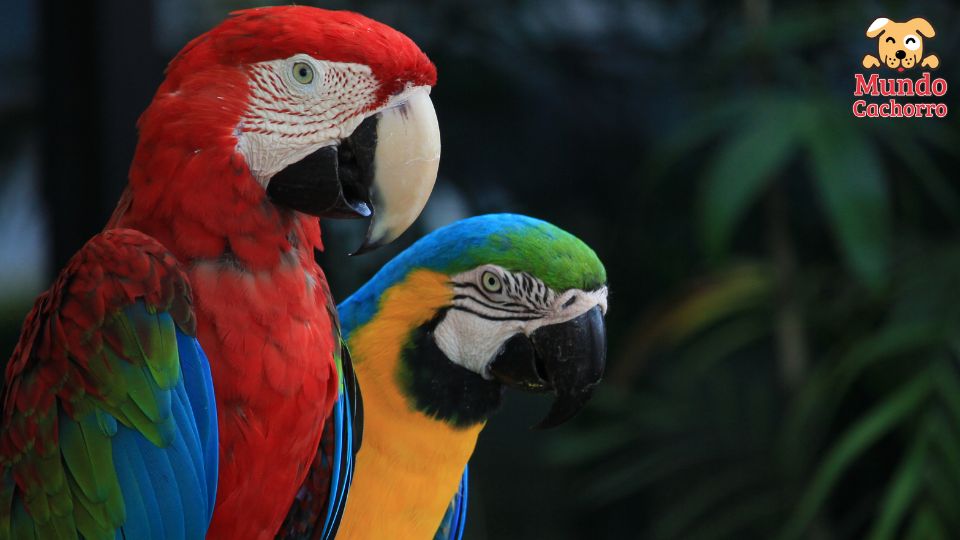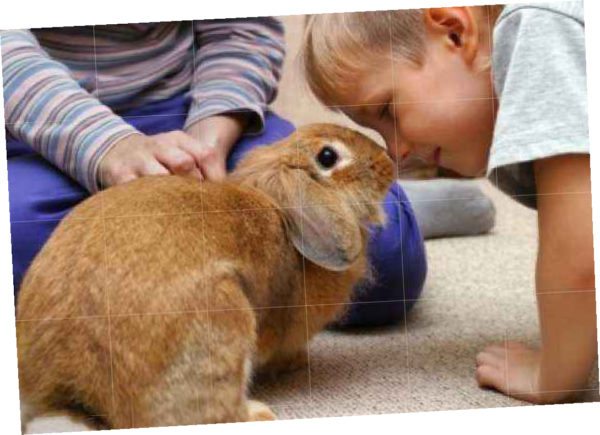Parrots are known for their unique ability to produce a variety of sounds, from whistles and cries to perfectly pronounced words. These sounds are not only fascinating, but also serve important functions in the lives of these intelligent birds. Understanding the different sounds parrots make will help you communicate better with your pet and interpret its needs and emotions.
In this article, we’ll explain what parrot sounds are like, what they mean and how you can respond to them to maintain a harmonious relationship with your feathered companion.
Indice
1. The natural language of parrots: cries and screams.
Parrots, being highly social birds, use cries and screams as their primary form of communication with other members of their species. These sounds can be quite loud and, at times, alarming to those who are not accustomed to them.
However, it is important to understand that these cries are a natural form of expression for parrots and can have different meanings depending on the context. A parrot may scream to attract attention, to express enthusiasm or to warn of possible danger. In the wild, these sounds allow them to keep in contact with their flock, ensure that everyone is safe, and communicate the location of resources such as food and water.
How to interpret your parrot’s cries
If your parrot screams frequently, pay attention to what is going on around it. It may be reacting to external stimuli such as loud noises, unexpected visitors or changes in its environment.
Repetitive or prolonged screaming may indicate that your parrot is lonely, bored or stressed.
In these cases, increasing social interaction, providing toys or time out of the cage may help reduce his need to scream.
2. Learned vocalizations: words and phrases
One of the most fascinating characteristics of parrots is their ability to imitate human words and phrases. Although not all parrots develop this ability, many species, such as African grey parrots and macaws, are known for their impressive ability to reproduce speech sounds. When a parrot repeats words or phrases, it does not necessarily understand their meaning, but uses these sounds as part of its vocal repertoire. Parrots learn to imitate sounds they hear frequently in their environment, especially if they receive a positive response when they do so.
This ability is not only a sign of their intelligence, but also a way to strengthen their bond with the humans they live with.
Encourage word learning
If you want to teach your parrot words, repeat short, clear phrases at specific times of the day. For example, you can say “Hello” when you enter the room or “Goodbye” when you leave.
Consistency and patience are key to getting your parrot to associate words with specific actions and events.
Reward your parrot when it tries to imitate you, using treats or petting to reinforce the behavior.
Whistles and melodies: expression of joy and well-being.
Whistling is another common form of vocalization in parrots, and generally indicates that the bird is feeling happy and relaxed. Parrots often whistle to express their good mood, to get their owners’ attention or even to imitate melodies they frequently hear.
This type of vocalization is usually softer and more melodic compared to screaming, making it one of the most pleasant forms of parrot communication. Some parrots can even learn to whistle complete melodies, especially if they listen to music regularly. This demonstrates not only their ability to imitate sounds, but also their desire to participate in the activities of their environment.
How to respond to whistles
When your parrot whistles, you can respond positively by imitating the whistle or responding with affectionate words. This interaction strengthens the bond between you and your parrot and shows him that you appreciate his attempt to communicate with you.
If your parrot shows an interest in music, you can play soft melodies or songs that he can try to sing along with.
This will not only entertain him, but also stimulate his mind.
4. Tongue clicking and other soft sounds.
In addition to cries, words and whistles, parrots also emit a variety of soft sounds such as tongue clicks, cooing and murmuring. These sounds are usually signals of satisfaction or social interaction, especially when parrots are near their owners or other parrots. Tongue clicking, in particular, is a sound that some parrots make when they feel comfortable and confident. It is similar to the noise we humans make when we click our tongues against the roof of our mouths.
Cooing and murmuring, on the other hand, are soft sounds that parrots use when they are quiet or when interacting in a friendly manner with other parrots.
Encourage these sounds
To encourage these soft and pleasant sounds, provide your parrot with a relaxed and safe environment. Talk softly to him, pet him and make sure he has a quiet environment.
Parrots are more likely to make these sounds when they feel at peace and well cared for.
5. Silence: a form of communication
Although it may seem surprising, silence is also a form of communication in parrots. A parrot that is normally vocal but suddenly becomes silent may be indicating that something is not right. Silence may be a sign that the parrot is feeling sick, frightened or uncomfortable. Parrots are creatures of habit, and any changes in their vocal behavior should be closely observed. If your parrot is unusually quiet, check its environment to make sure there are no factors that may be causing it stress.
It is also important to check its health, as prolonged silence may be an indication of illness.
When to worry about silence
If your parrot exhibits unusually quiet behavior for several days, consult a veterinarian specializing in birds to ensure that its health is in optimal condition. Silence, although sometimes normal, should not be ignored if it is a sudden or unusual change in behavior.
Understanding sounds to improve your relationship with your parrot
The sounds your parrot makes are a window into its inner world and give you important clues about its emotional state and needs. From cries and squeaks to whistles and coos, each sound has a specific meaning and function in your daily life.
By learning to interpret and respond appropriately to these sounds, you can strengthen your relationship with your parrot and ensure that it is happy, healthy and well cared for. Remember that communication is two-way, and your attention and response to your parrot’s sounds are critical to its well-being.








